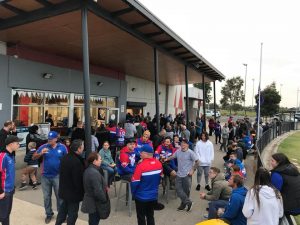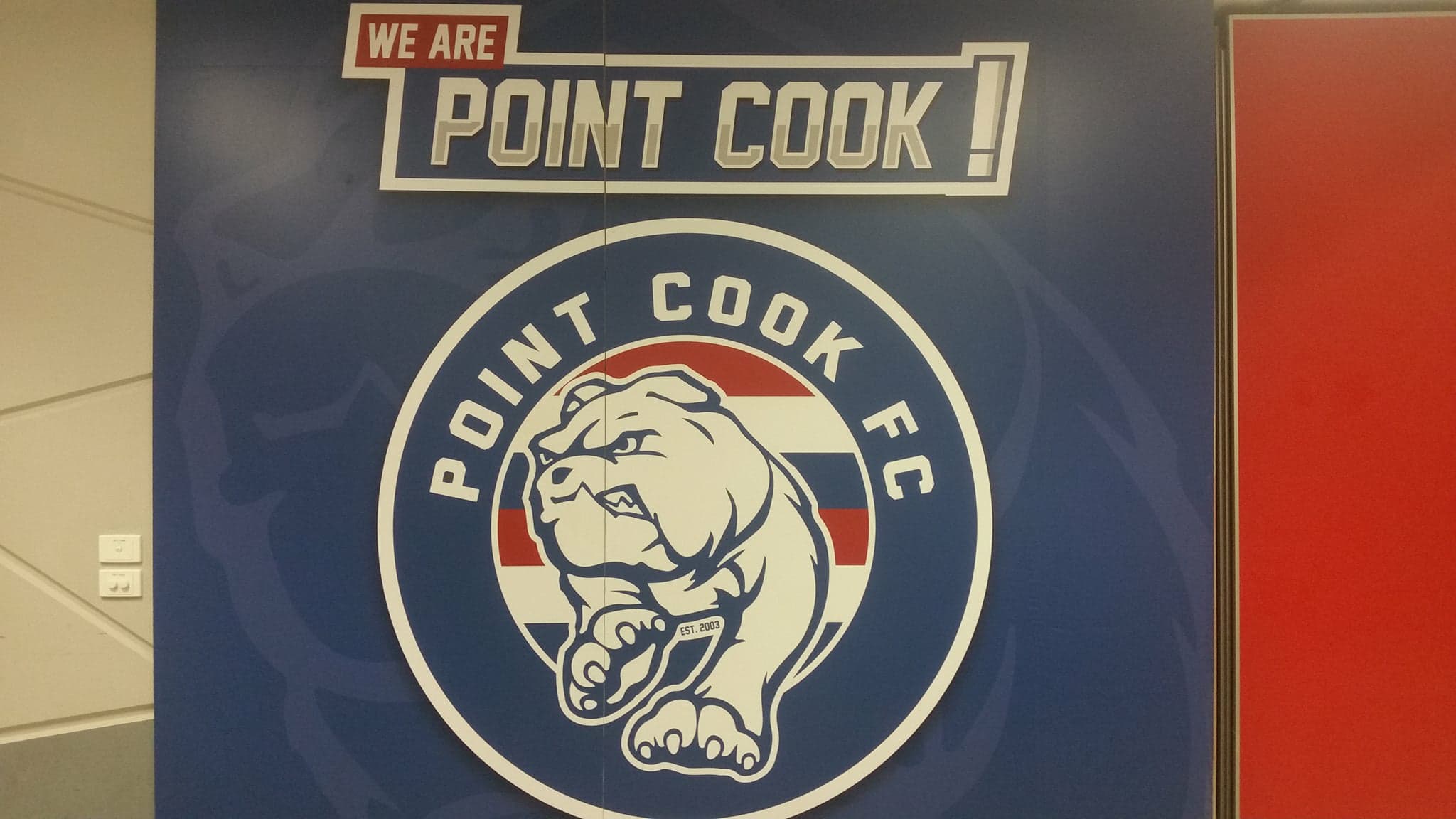It was July 2017 when the Point Cook Football Club made the decision that after eight years, their time in the Victorian Amateur Football Association (VAFA) was over.
Instead, from the start of the 2018 season, Point Cook’s senior, reserve and under 19s teams were to compete in the Western Region Football League (WRFL), becoming the competition’s 25th club (Glen Orden the 26th).
Previously the football club had focused purely on developing its junior teams in the WRFL, while its senior team had been in the VAFA competition since 2010.
Matthew Duck, the Chief Executive Officer at the WRFL, welcomed Point Cook’s decision to return to the league.
“The move was widely supported by the WRFL community, with recognition of Point Cook FC’s long-standing place in western suburbs footy,” he told upstart.
“Point Cook FC was already an established, affiliated WRFL club (through junior football), the process did not involve a formal club vote.
“It appeared on the surface a natural fit given Point Cook’s established involvement in the WRFL (through junior football) and geographic location, among other factors.”
The move of Point Cook’s senior and reserve sides to the WRFL from the VAFA has had immediate impact on the competition, increasing, according to Duck “both the number of rivalries and the quality of the clubs within our competition.”
Ivo Havard, the President of the Point Cook Football Club, has only been in the role since 2017. A former club secretary and Vice President in 2014 and 2015, Havard was one of the key drivers in making the move a possibility.
“The WRFL resonates with the community of Point Cook. We’re western region people so they enjoy the western region football,” he told upstart.
Even with all these benefits, the greatest impact the move has had is on the club itself and its ability to prevent young talent from straying to to rival clubs.
“The time for change was when I came in and there [were] junior players part of our family getting to a certain stage in their footy careers and not looking at the Point Cook Football Club VAFA option,” Havard said.
“There was something really wrong with that so we considered it and asked people questions as to why did they move and the feedback was the club didn’t have the proper career path for kids.”
Previously many of the club’s talented youngsters made the switch to other teams in the WRFL. This was due to there being no direct pathway for Point Cook’s juniors to transition to the senior and reserve sides who were then competing in the VAFA.
Now, things have changed.
“Other clubs now know that the door’s shut on any kids from Point Cook because they know they’ve got a natural talent path through the WRFL juniors to the WRFL seniors, so there’s no picking off anymore,” Havard said.
“Our kids are here and they’ll look forward to their careers at Point Cook as there’s no reason to leave.”

Havard knows the club owes a debt to the VAFA, though.
“We don’t want to lose sight of where we came from, the VAFA competition served us very well from 2010 to 2017,” he said.
“The type of footy in the VAFA is fantastic footy but it was going to take us a long, long time to get to a standard where our kids could aspire to.
“In the meantime surrounding clubs were saying Point Cook’s a really good breeding ground for us, and I didn’t like that.”
With the introduction of the under 19s and the under 17s to the WRFL in recent seasons, Point Cook is seeing results.
“The juniors have also gone through the roof, last year we won three flags, under 13 division one, under 14 division one and under 15 division two,” Havard said.
“So that group coming through is going to be the backbone of the club for a long time.”
The move opened up other benefits such as player acquisition and retention. During the pre season, the club was able to retain virtually all its senior VAFA list, and recruited former AFL ruckman Wayde Skipper from the Hoppers Crossing Warriors in WRFL division one.
Skipper was with the Warriors for four seasons (2014-2017), winning the WRFL division one Barry Priest Medal in 2015. Skipper’s AFL career saw him play 60 games between 2001 and 2010 for the Western Bulldogs and Hawthorn Hawks.
“There’s a definite feeling around the group, the time they’ve spent together over the last few years, there’s a genuine want to be a part of the football club,” he told upstart.
“They’ve got that passion from being around each other and knowing each other, that VAFA background, playing for the love of the game.”
Skipper sees the value in the juniors having a senior team to aspire to.
“Hopefully, well after I’m gone, in three, four or five years time, that the kids look up to the senior footballers [and] want to aspire to play senior football, because that’s your stepping stone to playing higher footy.
Havard believes that smart decisions and wise recruitment has helped the perception of the Point Cook Football Club change significantly.
“We’ve moved from a club who were probably going through the motions a bit to now a club of destination,” he said.
“Strong coaching, strong administration and strong facilities, we have the three boxes ticked pretty well and we’re starting to see the fruits of our labour with the quality of kids and the teams we’re putting on park.”
Another member of the club who played a huge role in the development of Point Cook is senior coach Ian Denny.
Denny is no stranger to the WRFL after he coached division one club St Albans for four seasons (2010-2013), taking them to three finals series and has been with Point Cook since 2014.
“I played a fairly significant role along with Ivo, we worked hand in hand,” he told upstart.
“I represented the players; spoke on behalf of the playing group and to the playing group.
“I jumped on board with it (the move). We agreed that we lost some good players to other WRFL clubs and other clubs around the state.
“I got onboard and signed first and said I’ll coach again next year. Through that appointment I was able to then help the club sell the story of moving to the WRFL.”
Although it signalled a changing of the times, the club and its community were all onboard.
“I think the more information we gave the club and its people an understanding that ‘it’s a club we play for, not a league’, that it was a lot easier to bring people for the ride,” Denny said.
“If you were talking percentages I think it’d be 99.5 percent of the people transitioned across with the club.”
During his time in the VAFA, Denny took Point Cook to its first finals series in his second season (division four) and its maiden grand final in his third year (2016 division four).
They fell short by 17 points but were ultimately promoted to VAFA division three for the 2017 season.
All of these changes have culminated into the club being financially stable and ready for a crack at success.
“As far as revenue is concerned, sponsorship is through the roof and our bar is well in front of last year’s figures already,” Havard said.
“We’re looking forward to keeping it going, sustaining it and having a good end to the year.”
Nicholas Galea is a third year Bachelor of Media and Communications (Sport Journalism) student at La Trobe University. You can follow him on Twitter @NickGalea1617







